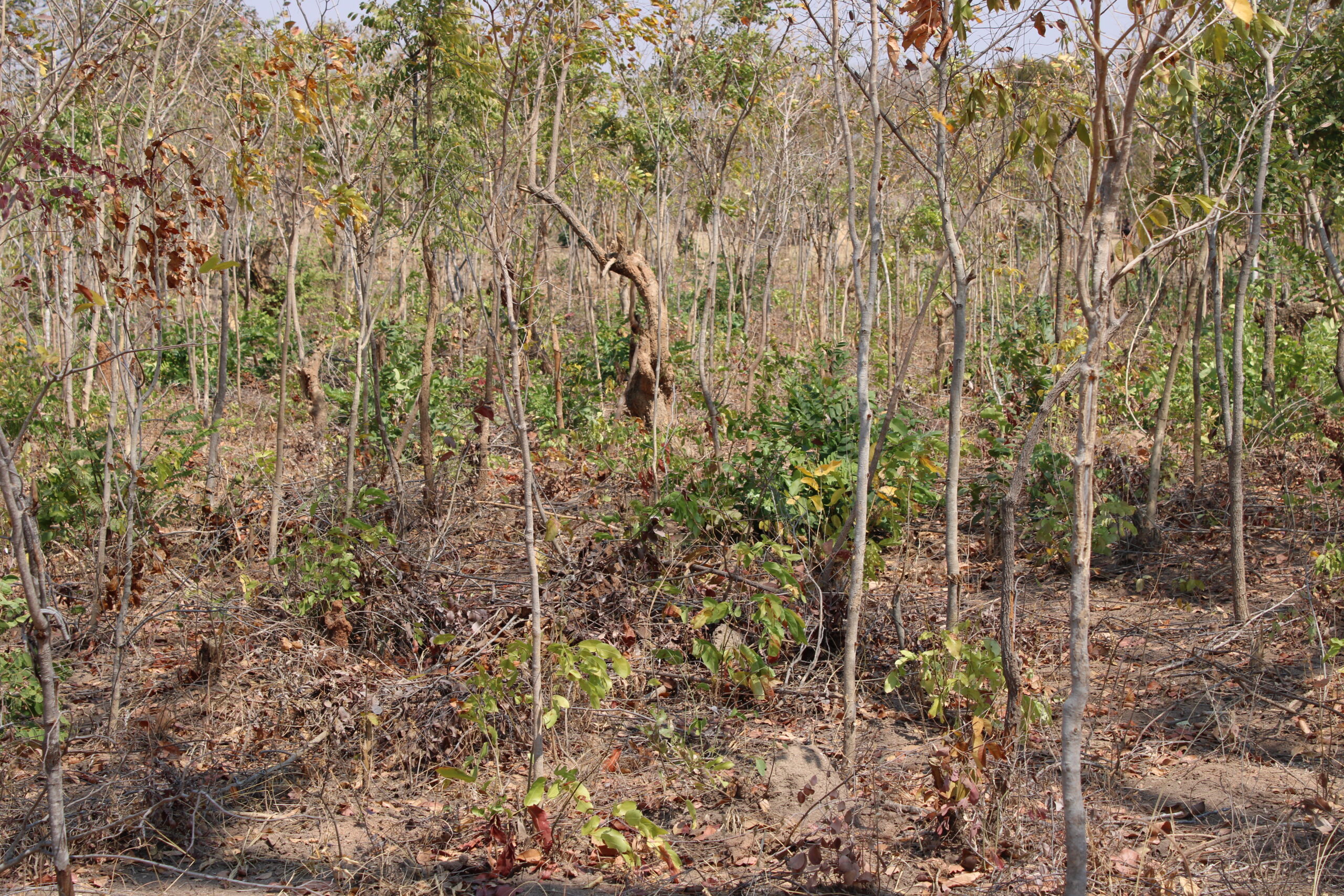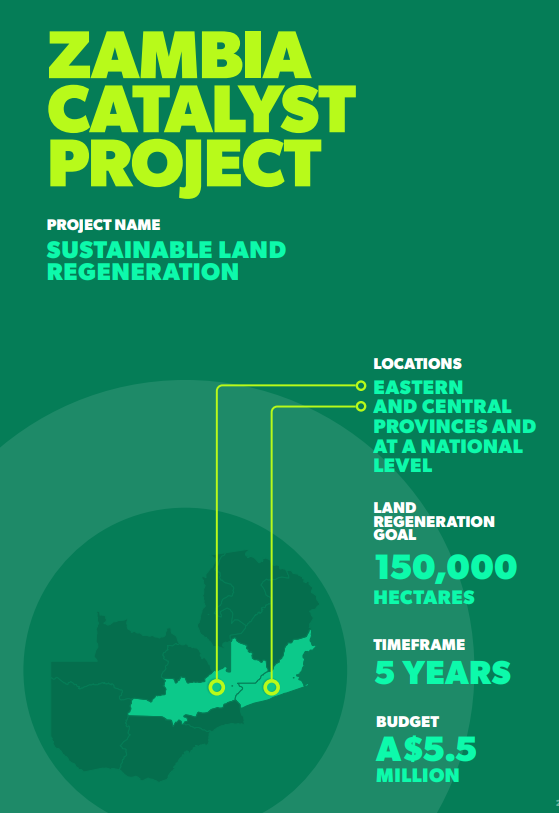Zambia
Why Zambia?
Forests support around 60 percent of Zambia’s rural population who depend heavily on natural resources for their livelihoods. But every year, around a quarter of a million hectares of Zambia’s forests are lost to firewood and charcoal production, and land clearing for farming, mining and human settlement.
This loss of trees and the damage it’s causing to the environment are creating problems for rural communities. Depleted soil is making it harder for farmers to grow crops and they’re becoming more reliant on expensive chemical fertilisers. They’re also suffering the impacts of climate change. Erratic rainfall and more intense flash floods are driving families, particularly from southern regions, to migrate to other parts of Zambia in search of better conditions.

According to the UNCCD, 5.2 million hectares of land in Zambia is estimated to be degraded.
According to the Republic of Zambia, the estimated deforestation rate is 200,000 – 300,000 hectares per year.
According to the UNCCD, climate change could cost Zambia’s economy US$13.8 billion.

Sustainable land regeneration, Zambia
This project will be implemented in Chibombo in Central Province and Katete and Sinda in Eastern Province. These provinces were prioritised as they have some of the highest proportions of degraded land in Zambia.
150,000
hectares of land under restoration
5 years
The project will be running from June 2022 – July 2027
Project outcomes
In order to regenerate 150,000 hectares of land, the project aims to address current land degradation issues in the prioritised project locations, as well as mobilise partners and communities to spread FMNR beyond these sites. By scaling FMNR in this way, communities experiencing significant challenges due to land degradation can mitigate and adapt to climate change, rapidly restore their environments, and better provide for their children.
World Vision’s direct FMNR programming reach is expanded.
External partners empowered and mobilised to scale FMNR.
Grassroots movements catalysed for widespread promotion and adoption of FMNR.
The enabling environment is strengthened to promote FMNR scaling in Zambia.
ANCP project
We are a valued partner of the Australian Government, receiving flexible funding under the Australian NGO Cooperation Program (ANCP) each year to implement development and poverty alleviation programs overseas.

Get involved
Anyone can join the global FMNR movement by learning the technique, spreading awareness, participating in local projects, or supporting initiatives that directly implement FMNR. This helps restore degraded lands and build sustainable futures for children and their communities.